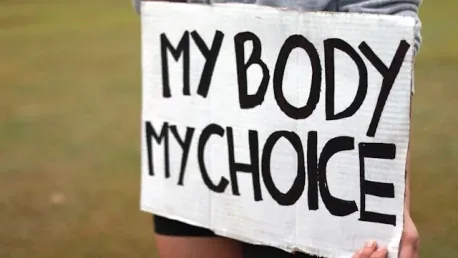New York’s controversial abortion anti-discrimination law, often referred to as the “Boss Bill,” has faced significant legal scrutiny from various groups claiming that it infringes on their First Amendment rights. Recently, a notable development emerged in the ongoing legal battle as the 2nd U.S. Circuit Court of Appeals issued a partial victory in favor of the plaintiffs. This decision mandates a closer examination of how the law might infringe upon the expressive association rights of certain religious organizations.
The Background of the Boss Bill and Legal Challenge
Christian Plaintiffs’ Claims Against the Law
The Christian pregnancy care center CompassCare, along with other plaintiffs, has asserted that the Boss Bill violates their First Amendment rights, particularly focusing on issues of free speech, free exercise of religion, expressive association, and religious autonomy. The crux of their argument lies in the belief that the law unjustly interferes with their ability to operate in a manner consistent with their religious convictions.
The Boss Bill prohibits employers from accessing personal information regarding an employee’s reproductive health decisions and from discriminating against them based on those choices. Moreover, it also prevents employers from compelling their employees to sign waivers relating to reproductive health decisions. This law’s intention is to protect employees from discrimination based on personal health choices, but it has raised significant concerns about the implications for religious organizations. Previously, the district court dismissed all claims brought forth by the plaintiffs, but the 2nd Circuit’s recent ruling has breathed new life into the case by vacating the dismissal of their expressive association claims. The matter has been remanded for further consideration, ensuring a detailed judicial review of the plaintiffs’ assertions.
Precedent Set by Slattery v. Hochul
The precedent-setting case, Slattery v. Hochul, had a notable influence on the current ruling. In this case, the 2nd Circuit ruled that the same anti-discrimination provisions potentially burdened the rights of a crisis pregnancy center by compelling it to employ individuals who contradicted its foundational mission. This ruling established a critical legal precedent, indicating that courts need to balance anti-discrimination protections with the rights of religious organizations to uphold their core values through employment practices.
The court’s decision in Slattery v. Hochul underscored the necessity for a nuanced approach when adjudicating claims that an anti-discrimination law burdens a religious organization’s mission. Consequently, the appeals court required a more detailed evaluation of how specific employment decisions could directly impact an employer’s ability to fulfill its mission. The current ruling concerning the Boss Bill aligns with this precedent, compelling the district court to reassess how the law potentially affects the expressive association rights of the plaintiffs in this case.
Implications of the Court’s Decision
Balancing Anti-Discrimination Protections and Religious Freedoms
The crux of this ongoing litigation is the intricate balance between anti-discrimination protections and constitutional freedoms, particularly for religious or mission-driven organizations. The recent appellate court ruling articulated that while employers cannot broadly exempt themselves from anti-discrimination laws, they do have the right to argue specific instances where an employee’s reproductive choices directly threaten their mission.
For the plaintiffs to prevail, they must convincingly demonstrate that the employment of an individual with reproductive health decisions at odds with their mission has a direct and substantial impact on their organizational objectives. This requirement places a significant evidentiary burden on the plaintiffs to show a tangible connection between the employee’s personal choices and the organization’s operational integrity. The court’s directive acknowledges the complexity of these situations, where the protection of individual rights must be carefully weighed against the preservation of an organization’s foundational principles.
Future Considerations and Legal Ramifications
New York’s contentious anti-discrimination law related to abortion, commonly known as the “Boss Bill,” has been under significant legal challenge from various groups. These groups argue that the law violates their First Amendment rights, particularly with regard to freedom of speech and religious expression. The 2nd U.S. Circuit Court of Appeals has delivered a partial victory for the plaintiffs, which requires a more in-depth review of how the law might infringe upon the expressive association rights of some religious organizations. This ruling mandates that lower courts take a closer look at specific claims made by these organizations, ensuring that their concerns about potential violations of expressive freedom are appropriately addressed. The partial victory doesn’t completely overturn the law but signals a need for further judicial scrutiny. It’s a significant step for the plaintiffs as they seek to protect their constitutional rights against what they believe to be overreach by the state of New York.









